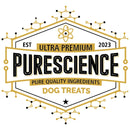Hormone problems can have a significant impact on allergies in dogs due to the intricate relationship between the endocrine system and the immune system. Here's how hormone problems can potentially worsen or trigger allergic reactions in dogs:
● Skin Coat: Balanced hormone levels in dogs play a pivotal role in regulating sebaceous gland activity, promoting the production of essential oils that nourish the skin and contribute to a lustrous, resilient coat, thereby reducing the likelihood of skin irritation, hair loss, and other dermatological issues.
● Immunomodulation: Hormones play a crucial role in regulating the immune system's response to allergens. Any disruptions or imbalances in hormone levels can lead to an altered immune response, making the dog more susceptible to allergic reactions.
● Inflammation: Hormone imbalances can contribute to increased inflammation in the body. Chronic inflammation can exacerbate existing allergies or trigger new allergic responses, leading to symptoms such as skin irritation, itching, and respiratory issues.
● Skin Health: Hormonal imbalances can affect the skin's health and integrity, compromising its natural barrier function. A weakened skin barrier makes it easier for allergens to penetrate the skin, triggering allergic reactions such as dermatitis and pruritus.
● Stress and Allergies: Hormone imbalances, particularly those related to stress hormones like cortisol, can exacerbate allergic reactions. Elevated stress levels can weaken the immune system, making the dog more vulnerable to allergens and triggering more severe allergic responses.
● Thyroid Dysfunction: Thyroid hormone imbalances, such as hypothyroidism or hyperthyroidism, can impact the dog's skin health and coat quality. Poor skin condition can increase the likelihood of allergic reactions and skin allergies, making the dog more prone to itchiness, rashes, and other allergic symptoms.
● Endocrine Disruptors: Exposure to certain environmental endocrine disruptors can interfere with the body's hormonal balance. These disruptors can contribute to immune dysregulation, potentially aggravating existing allergies or triggering new allergic responses in dogs.
Understanding the intricate connection between hormone balance, immune function, and allergic reactions is crucial in managing allergies in dogs. By addressing underlying hormonal issues and promoting a balanced endocrine system, it's possible to mitigate the negative impact of hormones on allergic responses, leading to improved overall well-being and a better quality of life for your canine companion.



